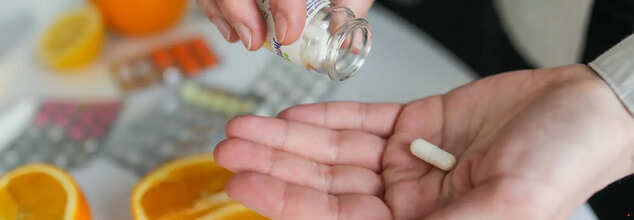
RFK Jr.'s Autism Controversial Comments Face Backlash From Parents And Medical Experts
Robert F. Kennedy Jr., the U.S. Secretary of Health and Human Services, is facing strong backlash after making sweeping comments during a recent press conference regarding autism and its supposed causes. As the CDC released a report revealing a rise in autism diagnoses among U.S. children now affecting 1 in 31 8-year-olds Kennedy doubled down on discredited theories linking autism to environmental exposures and vaccines, while portraying the disorder in stark, stigmatizing terms.
His remarks including claims that children with autism “will never hold a job,” “never pay taxes,” or “never use a toilet unassisted”, were swiftly condemned by parents, medical experts, and advocacy groups alike for reinforcing outdated stereotypes and misrepresenting the broad and diverse autism spectrum.
Autism spectrum disorder (ASD) is not a single condition with uniform symptoms or outcomes. Rather, it is a neurological and developmental condition characterized by challenges in social interaction, communication, and repetitive behaviors. The key word is "spectrum" and it exists for a reason.
Some individuals with autism may be nonverbal and need lifelong support, while others live independently, excel in careers, write books, or even hold public office. “Autism is not a disease,” said actress and autism advocate Holly Robinson Peete in a video statement, responding to Kennedy. “It is a developmental difference and it is important to get that right.”
Her son, RJ, diagnosed 25 years ago, has “shattered a lot of 'never' off that list,” she said, referring to Kennedy’s grim portrayal. Countless parents echoed this sentiment on social media, stating that Kennedy’s generalizations erase the lived realities, milestones, and accomplishments of their children.
CDC Data Shows a Rise in Diagnoses
The CDC’s Autism and Developmental Disabilities Monitoring (ADDM) Network reported that 1 in 31 8-year-olds in the U.S. were diagnosed with autism in 2022, compared to 1 in 54 in 2016. But experts stress that this increase is not necessarily cause for alarm. It is, in fact, a sign of progress.
The rise in autism rates is driven largely by improved awareness, broader diagnostic criteria, and increased access to evaluations and services. We are identifying children earlier and more accurately that’s a good thing.
Kennedy, however, rejected this explanation as “indefensible” and announced plans for a directive to the National Institutes of Health to investigate “environmental exposures” as the root cause — reigniting long-debunked concerns about vaccines and toxins.
Despite overwhelming scientific consensus debunking any link between vaccines and autism, Kennedy has long been associated with promoting vaccine hesitancy. His latest comments, veiled in language about “environmental exposures,” once again hint at this discredited narrative.
Leading medical organizations, including the American Academy of Pediatrics and the World Health Organization, have repeatedly emphasized that vaccines are safe, effective, and have no causal relationship with autism. Resurrecting these claims only spreads fear and confusion. It undermines public health and harms autistic people by framing their existence as a preventable tragedy.
Parents Demand a Shift in the Narrative
Perhaps the strongest rebuke came from parents of autistic children themselves. Samantha Taylor, whose 20-year-old son is on the spectrum, told Good Morning America, “Autism doesn’t destroy families misinformation does.” In a viral Facebook post, she added, “What truly causes damage is the relentless portrayal of autism as something catastrophic, rather than a different way of experiencing the world.”
Kennedy’s comments, they say, not only ignore the complexity of the condition but strip children of their dignity and potential.
“Statements like ‘they’ll never write a poem’ deny the creative genius that so many autistic individuals demonstrate,” said Peete. “It’s dangerous, it’s harmful, and it’s simply false.”
Experts Call for More Informed Leadership
While Kennedy has promised answers by September through federally backed studies, medical experts warn that his rhetoric may set back years of advocacy and research by framing autism as an “epidemic” akin to an infectious disease.
Autism is not something to be eradicated, it’s something to be understood, supported, and embraced. Families deserve resources, not fearmongering.
In the last two decades, the medical community has shifted toward neurodiversity — a perspective that recognizes neurological differences like autism as natural variations of the human genome. This philosophy emphasizes inclusivity, respect, and strength-based approaches rather than medicalizing difference.
At a time when public trust in institutions is fragile, the words of public officials matter deeply. Kennedy’s comments have triggered a reckoning not only about how autism is portrayed in the media and politics but also about how society chooses to value — or devalue — people who are different.
Advocates stress the need for policies rooted in science, not stigma, and for leadership that uplifts rather than marginalizes.
As the national conversation around autism continues, one thing is clear: the autism community — parents, children, adults on the spectrum, clinicians, and allies — is not going to stay silent in the face of outdated narratives.

Credit: Canva
Trump Revamps White House COVID-19 Website To Promote China Lab Leak Theory
As the relationship between the US and China hit rock bottom, the White House has updated its COVID website, pinning the blame of the pandemic on China. The revamped website (www.whitehouse.gov) now reiterates the controversial Wuhan lab leak theory while also listing down 5 pointers supporting its claim. Notably, the website also targets Anthony Fauci, former chief medical advisor to President Biden, for advancing what it calls the "preferred narrative that Covid-19 originated naturally."
Here's Everything You Need To Know
The US Administration created the aforementioned website to spread information about the SARS-CoV-2 virus, which is responsible for the deaths of millions in the US. Previously, the website focused on promoting vaccine and testing information related to COVID-19. However, it now includes a full-length image of President Donald Trump along with 5 points that promote the Wuhan lab leak theory. Here's what it states:
1. The virus possesses a biological characteristic that is not found in nature.
2. Data shows that all COVID-19 cases stem from a single introduction into humans. This runs contrary to previous pandemics where there were multiple spillover events.
3. Wuhan is home to China’s foremost SARS research lab, which has a history of conducting gain-of-function research (gene altering and organism supercharging) at inadequate biosafety levels.
4. Wuhan Institute of Virology (WIV) researchers were sick with COVID-like symptoms in the fall of 2019, months before COVID-19 was discovered at the wet market.
5. By nearly all measures of science, if there were evidence of a natural origin, it would have already surfaced. But it hasn’t.
Notably, the revamped site, which seeks to redefine the narrative about COVID, also criticises the masks and social distancing mandates introduced at the start of the pandemic in 2020.
What Is Wuhan Lab Leak Theory?
As the name suggests, this theory claims that the lethal coronavirus was created in a lab in the Wuhan Institute of Virology (WIV), from where it escaped. The WIV, which has been studying coronaviruses in bats for over a decade, is only a 40-minute drive from the Huanan wet market where the first cluster of infections emerged. Those who entertain the theory say it could have leaked from a WIV lab and spread to the wet market. Interestingly, many also argue it would have been an unaltered virus collected from the wild, rather than engineered.
Is Wuhan Lab Leak Theory True?
Ever since the research on tracing the origins of COVID-19 began, Trump has accused China of "synthetising" the deadly coronairus. Earlier in 2020, adressing a press meet, he questioned Xi Jinping administration, saying, "Whether they (China) made a mistake, or whether it started off as a mistake and then they made another one, or did somebody do something on purpose?"
The World Health Organisation (WHO) in 2021 sent a team of scientists to Wuhan to trace the origin of the virus. However, after spending 12 days there, which included a visit to the laboratory, the team concluded the lab-leak theory was "extremely unlikely". However, this did not go well with Trump, who accused the global health agency of conspiring with China and also labelled it as a "PR agency" of China. After taking office this year, Trump pulled out funding from the WHO, citing its non-compliance with the Wuhan lab leak theory as one of the main reasons.
Even as the debate behind the COVID origin theory remains unresolved, US agencies such as the FBI and the Department of Energy have come out in support of the theory, albeit with varying levels of confidence. Earlier this year, the CIA shifted its official stance on the virus's origin, saying that it was "more likely" leaked from a Chinese lab than transmission from animals. The assessment drew criticism from China, which said it was "extremely unlikely" that COVID-19 came from a laboratory.

Credits: Canva
Think Drinking In Moderation Is Okay? Study Finds Only 8 Drinks A Week Could Also Trigger Brain Damage
For years, health experts and lifestyle gurus have been telling us that moderate alcohol consumption—so defined by some as a daily glass of wine or a weekend couple of beers—is not especially bad for you. A party drink with colleagues, a pre-dinner cocktail, or an evening nightcap to relax were all part of a healthy, balanced existence. New research is now breaking that myth, showing that even supposedly "moderate" drinking may be quietly harming our brains.
Based on researchers, even what most people would define as moderate drinking—just eight drinks of alcohol per week—may cause serious brain damage in the long run. A recent study released in Neurology, which was based on an analysis of almost 1,800 subjects from the UK Biobank, has come to a shocking conclusion: consuming eight or more alcoholic drinks per week may dramatically increase the risk of brain damage, even if you are not what society usually defines as a "heavy drinker."
The study, conducted by vascular health specialist Dr. Alberto Fernando Oliveira Justo, divided participants according to alcohol intake: never drinkers, moderate drinkers (seven drinks or less a week), previous heavy drinkers, and current heavy drinkers (those drinking more than eight drinks a week).
The findings of the team created eyebrows within the scientific world. Among people who never drank at all, 40% of them presented brain lesions—destruction of the tiny brain vessels. However, among the moderate drinkers, this figure reached 45%. Among heavy drinkers, it climbed to 44%, and highest, at 50%, was seen among heavy drinkers who had already quit drinking.
More troubling, moderate drinkers were discovered to be 60% more prone to the development of brain lesions than abstainers. In previous heavy drinkers, the risk rose by 89%, while among current heavy drinkers, the risk increased to 133%.
These lesions—which are called by doctors hyaline arteriolosclerosis—aren't just a joke. They form when small vessels deep in the brain become stiff and hardened, compromising blood supply. Eventually, such impairment will impact memory, capacity for learning, and intellectual function.
What Are Brain Lesions and Why Are They Important?
Brain lesions are not something you can see or touch right away, but they're very destructive. One of the most alarming types that this study points out is hyaline arteriolosclerosis, which is usually a result of high blood pressure or diabetes. Alcohol can now be added to the list.
These microalterations in the blood vessels of the brain lead to lower oxygen and nutrient delivery, which can cause cognitive impairment, mood disorders, and in the long run, diseases such as Alzheimer's and vascular dementia.
The research also revealed a higher level of tau tangles—protein clumps in the brains of individuals suffering from Alzheimer's—among heavy drinkers. Even individuals who had stopped drinking continued to have higher levels of these markers of neurodegeneration, indicating the damage may be irreversible once it has been inflicted.
Cognitive Decline and Decreased Brain Volume
The neurological effects didn't remain limited to lesions and tangles. Ex-heavy drinkers in the study had a lower brain mass ratio—i.e., their brains had contracted more than those of teetotalers. This physical contraction came along with diminished cognitive function, illustrating that the harm caused by alcohol can reach far beyond fleeting memory loss or hangover-brained fog.
Even more sobering was the statistic that heavy drinkers tend to die an average of 13 years earlier than non-drinkers. This finding underscores how deeply alcohol can impact not just quality of life, but its overall length.
This should raise major concerns, especially given how normalized heavy drinking has become in social settings and pop culture. From happy hours to boozy brunches, our weekly schedules often revolve around alcohol. But it’s time we ask—at what cost?
Also Read: Cardiologist Shares 4 Worst Drinks For Your Heart
Are Moderate Drinkers Safe?
Not necessarily. Although the dangers were less than those encountered by heavy drinkers, the research implies that even small amounts of drinking might ultimately lead to subtle but significant brain changes over time. These may not be immediately apparent but could arise later in life as memory lapses, confusion, and other symptoms of mental decline.
Interestingly, the research indicated that even former heavy drinkers continued to bear the impact of their past activity. Their chances of brain lesions and decreased brain mass continued to be extremely high, affirming the fact that the brain would not completely heal even when the individual gives up alcohol.
This calls into question the oft-held view that giving up alcohol "restores" your health. Although going dry undoubtedly has advantages and should avoid further harm, it might not heal the damage already done to the brain.
With brain damage, impaired cognition, and reduced lifespan increasingly being discussed as part of the alcohol talk, it's absolutely important to rethink what constitutes too much. Opting for brain-healthy alternatives—herbal tea, sparkling water, or mocktails—won't carry the same cache, but they're safer wagers for your long-term health.
Health professionals and lawmakers must take this information into account in revising drinking recommendations. And as individuals, perhaps it's time to trade the evening glass of wine or weekend cocktail for brain-boosting equivalents—herb-infused sparkling water, non-beer craft drinks, or just tea.

Credit: Canva
UK Recalls Common Blood Pressure Drug Over Packaging Error
Patients taking a widely used blood pressure drug are being advised to verify their medication after a batch was recalled due to incorrect dosage information printed on the packaging. According to the Medicines and Healthcare Products Regulatory Agency (MHRA), some packs of lercanidipine, manufactured by Recordati Pharmaceuticals, have been wrongly labelled as containing 10mg tablets, when in fact they contain 20mg tablets.
Over 7000 Packs Are Subject To Recall
More than 7,700 packs already distributed are now subject to the recall, the MHRA has confirmed. Patients who may have the mislabelled medication are being urged to contact their GP, pharmacist, or call NHS 111 for advice. The NHS warns that consuming an excessive dose of lercanidipine can lead to symptoms such as dizziness and drowsiness. The MHRA issued the alert on Thursday after being informed by the Italian pharmaceutical company Recordati that the error was confined to a single batch of lercanidipine, which was initially distributed on April 10. The recalled packs carry the batch number MD4L07 and are marked with an expiry date of January 2028.
Although the front of the affected packs displays the incorrect strength, the correct 20mg dose is printed on the blister strips inside and on the side of some of the boxes. The MHRA advises patients who have been prescribed the 20mg dose to check the blister packaging to ensure they have received the correct medication. However, those prescribed 10mg tablets should seek immediate medical attention if they have this batch.
As a temporary measure, the MHRA suggests that patients who cannot reach a healthcare provider may take half of a 20mg tablet until they receive professional guidance. Dr Alison Cave, the MHRA’s chief safety officer, stated: "Healthcare professionals such as pharmacists are also being asked to stop supplying medicine from the affected batch and to return it to the supplier." She encouraged anyone experiencing suspected side effects to report them through the MHRA’s Yellow Card scheme.
In a statement to the BBC, a spokesperson for Recordati said the company is "working proactively" with the MHRA and will contact all customers who might have received the affected batch. “We are investigating the root cause and continue to work with our partners to isolate the issue and minimise disruption to our patients. Patient safety remains our top priority,” the spokesperson added.
What Do We Know About Lercanidipine?
Lercanidipine is used in the treatment of Angina (heart-related chest pain), Hypertension (high blood pressure), Arrhythmia, hypertensive emergency, subarachnoid haemorrhage and anal fissure. According to the NHS, it is one of the four types of blood pressure medicines sold across the UK. These pills are a calcium channel blocker. That means it regulates blood pressure by relaxing blood vessels and reducing pressure on them, thereby making it easier for the heart to pump more blood throughout the body. In this way, it normalises the blood pressure in patients with high blood pressure.
ALSO READ: RFK Jr.'s Autism Controversial Comments Face Backlash From Parents And Medical Experts
© 2024 Bennett, Coleman & Company Limited

